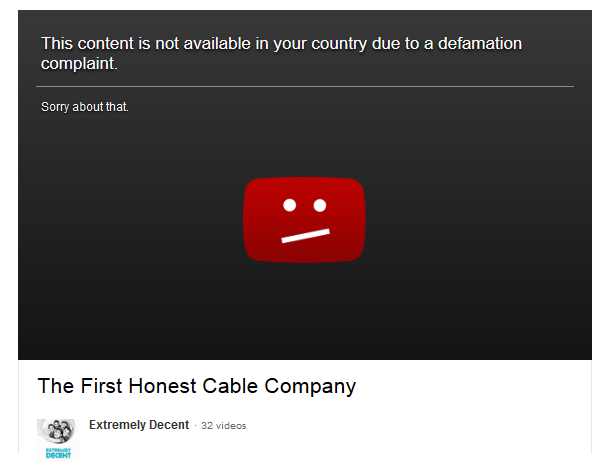 The reality show “Storage Wars” has created a case that offers some important anti-SLAPP (and litigation) lessons.
The reality show “Storage Wars” has created a case that offers some important anti-SLAPP (and litigation) lessons.
In December, David Hester filed a lawsuit against A&E Television Networks alleging that producers of Storage Wars rigged the reality-television series by salting storage lockers with valuable items before they were auctioned off to buyers. The producers deny the claim, pointing out that they have no access to the lockers before they are sold, but it could be that they are adding the items with the assistance of the buyers, after the purchase, to make the show more entertaining. After all, if the show was nothing but lockers full of expired National Geographic magazines, that would get boring fast. But I digress.
According to his lawsuit, Hester was told that his contract would be renewed for season four, but after complaining about the “fraud” that was being perpetrated on the viewers, he was told his services would no longer be required. He sued A&E and another entity for wrongful termination (huh?), breach of contract, breach of the covenant of good faith, unfair business practices, and declaratory relief.
Lesson 1: For every wrong, there is not necessarily a remedy.
Some attorneys just never get this. If I hire you for my television show, and I have the contractual right not to renew that contract at some point in the future, and you do something I don’t like, such as telling me you don’t like the way I am running the show that I’m paying you $750,000 to be on, then I just may decide not to keep you around. You are not some bastion for the public, given the task of making sure my show is pure. All reality shows are faked to some extent, and the viewers all know they are faked (although, incredibly, I did once run into a guy who thinks Ghost Hunters is totally legit).
It may stink that Hester got “fired” for wanting to keep the show honest, but if he wanted to make sure he never got fired for criticizing the show, the he should have added a “you may not fire me when I tell you your show stinks” clause to his contract.
Lesson 2: A faked reality show is an expression of free speech.
Can you sue Stephen King when you find out Pet Sematary [sic] is not based on reality? Then why did Hester and his counsel think they could sue A&E for its fictional Storage Wars? Not surprisingly, A&E’s attorneys asked the same question in the form of an anti-SLAPP motion. The motion was a no-brainer, because it involves a free speech issue of public interest, bringing it within the anti-SLAPP statute, and there was zero chance of Hester prevailing on at least one or more of his causes of action, so the second element was a lock. As I have explained many times here, a SLAPP suit will often make no mention of defamation or any other obviously SLAPPable claim, but nonetheless will be a SLAPP.
Lesson 3: Betting wrong on a SLAPP can be very expensive since some courts continue to rubber-stamp huge fee applications.
There is case authority for the proposition that if a court finds that a fee application on an anti-SLAPP motion was inflated, it can deny fees altogether, but I have yet to see a court follow the rule. In one case, I was brought in to challenge a fee application, and persuaded the court to knock off about 40% of the hours that were requested by the attorney who had successfully brought the anti-SLAPP motion. When the court stated in was reducing the fees by that amount, I reminded it of the authority that it could deny the fees altogether since defense counsel had been caught padding the bill. The judge responded, “Padding, what padding? I did not see any padding.” Well your honor, if the hours were all legitimate, then you should have awarded the full amount. But since you agreed with me that 40% of the time was inappropriate, then I would describe that as padding.
I have not reviewed the invoices for the anti-SLAPP motion in this case, nor do I know what other activities if any followed the original anti-SLAPP motion (for example, the plaintiff will sometimes request permission to conduct discovery following the motion and that takes time), so I offer no opinion on whether the time spent was appropriate. In the end, even after reducing the attorney fees requested by defense counsel, the attorney fees awarded still exceeded $120,000.




 I reported a little over a year ago about a discrimination case out of Texas. A fired employee sued for wrongful termination based on discrimination, claiming that she was fired due to her request to use the bathroom to breast-pump.
I reported a little over a year ago about a discrimination case out of Texas. A fired employee sued for wrongful termination based on discrimination, claiming that she was fired due to her request to use the bathroom to breast-pump. It is never defamation to report a fact, even if that fact is that a person was charged with a crime they did not commit. I understand why callers sometimes don’t understand this distinction. The completely innocent caller was falsely arrested, so it seems like a newspaper that reports the arrest is somehow making a false statement that the caller committed a crime. But look closer, caller. The paper did not report that you committed the crime, the paper reported that you were ARRESTED for the crime. Truth is an absolute defense to any defamation claim, and it is true that you were arrested.
It is never defamation to report a fact, even if that fact is that a person was charged with a crime they did not commit. I understand why callers sometimes don’t understand this distinction. The completely innocent caller was falsely arrested, so it seems like a newspaper that reports the arrest is somehow making a false statement that the caller committed a crime. But look closer, caller. The paper did not report that you committed the crime, the paper reported that you were ARRESTED for the crime. Truth is an absolute defense to any defamation claim, and it is true that you were arrested.


